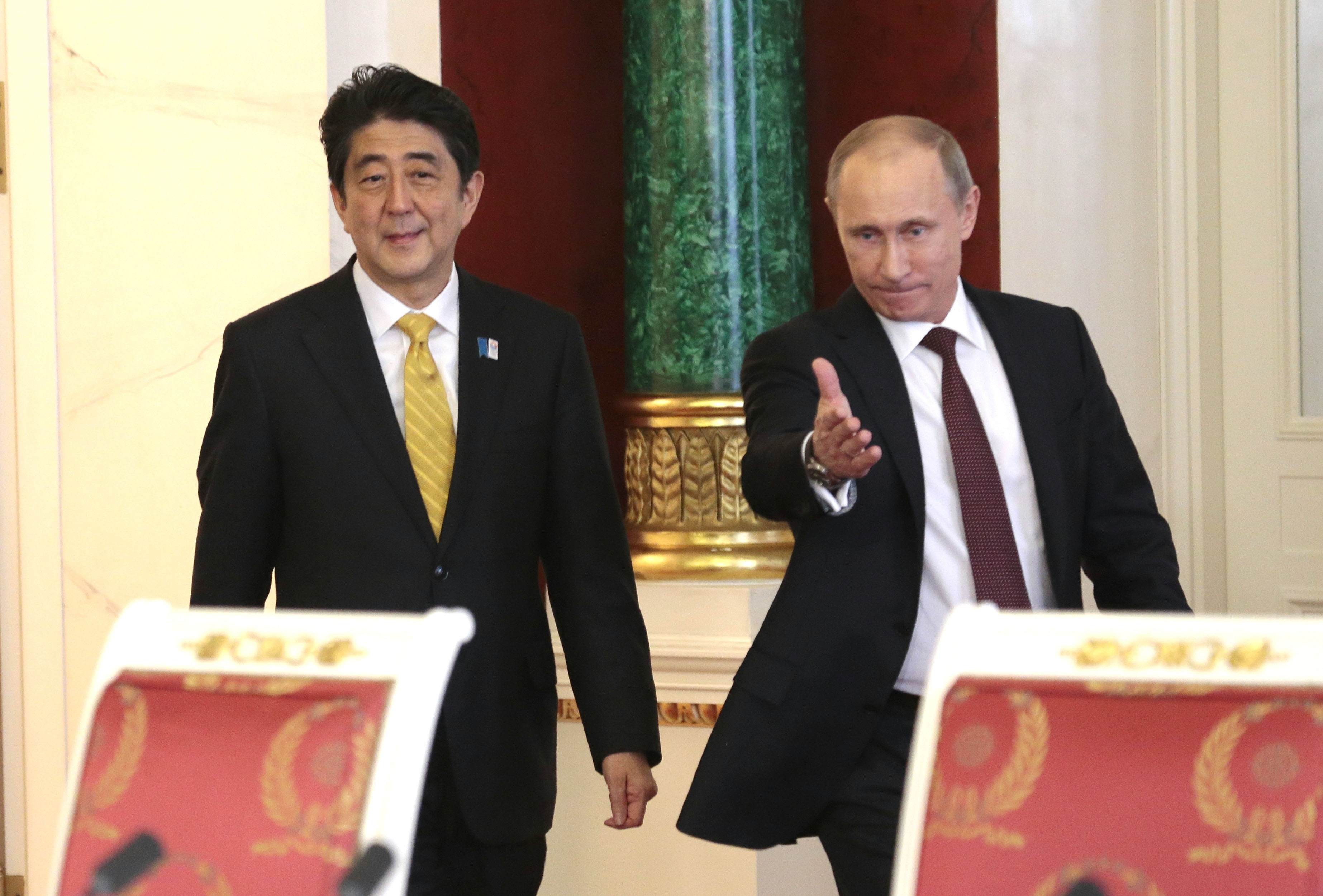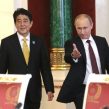
Putin’s Diplomatic Offensive Fails in Tokyo
Publication: Eurasia Daily Monitor Volume: 12 Issue: 138
By:

As Russo-Western relations go from bad to worse, the Kremlin has been developing strategic ties with Asia. In a recent three-part policy manifesto, President Vladimir Putin’s adviser Sergei Glazyev declared that the United States is determined to destroy Russia and provoke a large-scale war in Europe by using the Ukrainian crisis as a pretext. But according to Glazyev, the US’s prime target is not Russia, but China. In Glazyev’s opinion, China will soon overtake and destroy the United States’ global dominance, and Russia must align with the new Asian powerhouse, but be cautious not to be subordinated by the Chinese as a vassal. Russia must invest in high-tech defense industrial development and balance the growing Chinese dominance by developing close relations with other Asian economic and technological powerhouses—India, Korea and Japan (VPK, July 22).
Glazyev seems to be an influential political expert voice in the Kremlin. Russia has been promoting enhanced relations with China, India, Iran, Vietnam and reaching out to Japan. Last month (June 2015), during the St. Petersburg economic forum, Putin met with correspondents of leading world news agencies. Just like in previous years, the full transcript of the meeting was not published. But according to reports, Putin called Japan a “strategic partner” and expressed “a strong desire to meet with Japanese Prime Minister Shinzō Abe to discuss the Kurile Island issue.” Putin apparently told reporters: “All problems can be solved, but Russia cannot go ahead alone—Japan must make a move” (TASS, June 20). Putin’s overture was initially well received in Tokyo. Days after the St. Petersburg interview, Putin phoned Abe and they reportedly discussed “Ukraine and other issues.” Abe invited Putin to visit Japan, and multilevel bilateral meetings were agreed “to prepare this important visit” (Kremlin.ru, June 24).
Pro-Kremlin daily Izvestia reported that Japanese diplomats in Moscow were meeting Russian journalists to sound out public opinion before Putin’s possible visit, apparently in an attempt to understand how seriously the Kremlin was intent on a possible breakthrough in relations. But the signals were not encouraging—according to the Kremlin, no date has been fixed for the Russian president’s visit (Izvestia, July 21). Japan has accused Russia of building up its military infrastructure in the South Kurile islands of Kunashir and Iturup, which seems to clearly indicate: Russia is not ready to seriously consider sovereignty issues. Tokyo officially announced it needs solid proof Moscow is ready to discuss the sovereignty “of all the South Kuriles,” before Putin’s visit may go ahead. In 1945, the Kuriles were taken over by the Soviet Union as Japan capitulated, but Tokyo (and Washington) never recognized the Southern Kuriles as legally belonging to Moscow (Kommersant, July 21).
Moscow is indeed interested, politically and economically, in improving relations with Tokyo. For Russia, it is highly important to insert a wedge between the G7 nations, which, at present, seem to be holding a united front in opposing Russian actions in Ukraine. But the Kremlin is limited in what it can offer Japan. Moscow and Tokyo have not signed an official peace treaty after World War II. In 1956, a so-called Moscow Declaration was signed, ending the state of war and reestablishing full diplomatic relations between the two capitals. In the declaration, Moscow promised after a peace treaty is signed to hand over sovereignty of the islands of the Lesser Kurile Chain—Shikotan and the uninhabited Habomai Islands—which lie East of the main Kurile Chain. The Lesser Kuriles were never handed over, but Putin has renewed the offer; Tokyo seems to be flatly reject it. Putin’s visit to Tokyo is now in question, and the Japanese are being accused in Moscow of “blackmail.” Japanese Foreign Minister Fumio Kishida is apparently planning a visit to Moscow sometime soon to determine if there is a possibility to make any real progress on the Kurile issue to warrant a visit by Putin to Tokyo, but the prospects of any significant success seem slim, and the exact timing of Kishida’s visit has not been set, yet (Nezavisimaya Gazeta, July 22).
Russia’s Prime Minister Dmitry Medvedev has declared that some 70 billion rubles (about $1.4 billion) will be spent to develop the Kurile Islands and improve living conditions there in the coming ten years (Interfax, July 23). Of the 18 major Kurile Islands, only 4 are, at present, inhabited, and of those, 3 are in the south—and thus in dispute with Japan. The entire population of the Kuriles is less than 20,000, so the Russian government apparently plans to spend an impressive $70,000 per person on the Kuriles “to improve living conditions.” Medvedev added that he is planning to visit the disputed South Kuriles soon and invited all other ministers to go there, too. Tokyo would see any official visit to the disputed territory as a provocation, and the controversy could make Putin’s planned visit even less likely. Medvedev added: “We are rebuilding not only the civilian, but also the military infrastructure of the Kuriles. The buildup began some time ago and is now activated. The Kuriles are strategically important in defending Russia, and military presence will be enhanced” (Interfax, July 23).
The Russian military and the Kremlin consider Kunashir and Iturup too important militarily to consider any possibility of discussing their sovereignty. Two of the newest Borei-class strategic nuclear submarines, armed with new Bulava multiple-warhead ballistic missiles, are scheduled to arrive in Kamchatka at the Vilyuchinsk submarine base, where housing and infrastructure have been revamped on orders from the Kremlin. The first—Alexander Nevsky—is planned to be deployed this fall, and the Vladimir Monomakh will arrive next year (Interfax, May 21). The Borei submarines will go on patrol from Vilyuchinsk into the Russian-controlled Sea of Okhotsk to target from there the continental US. The Sea of Okhotsk is seen as a better safe haven than the northern Barents Sea. But keeping military control over the entire Kurile Chain, including the disputed Kunashir and Iturup islands, is seen as essential to keep the US and allied naval antisubmarine forces out of the Okhotsk Sea—and the Borei subs safe. The Lesser Kuriles—Shikotan and Habomai—are less strategically essential, and Putin seems to be ready to hand them over, though this could be highly unpopular in today’s Russia. Nevertheless, the Japanese are not ready to settle only for the Lesser Kuriles, thus undermining Putin’s attempted detente with Tokyo.




